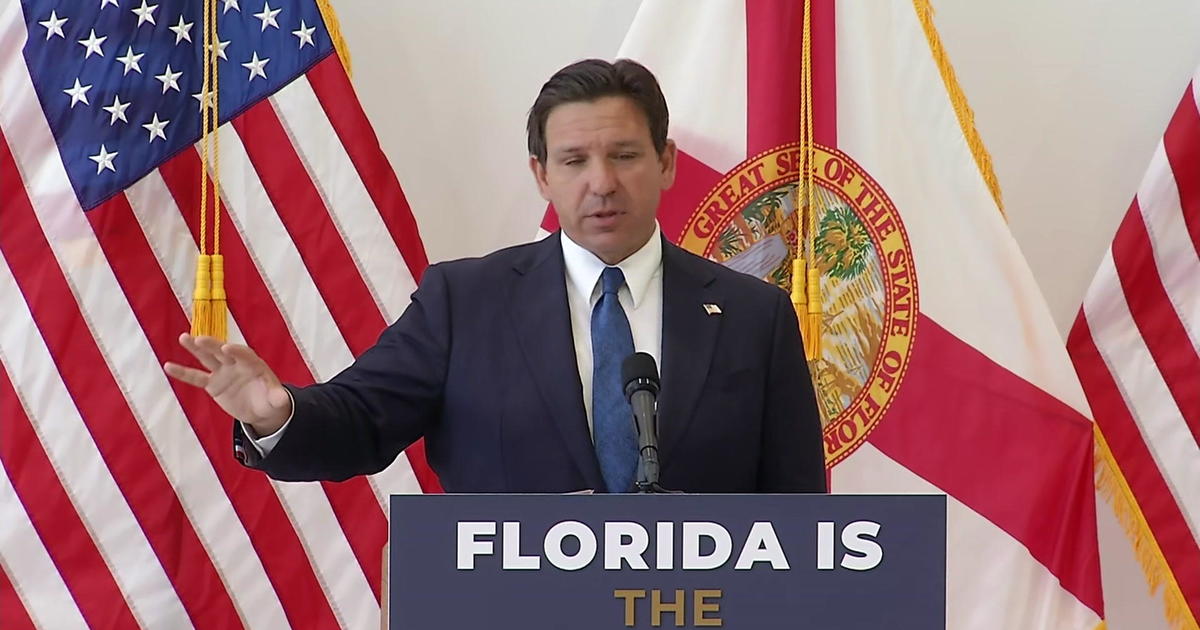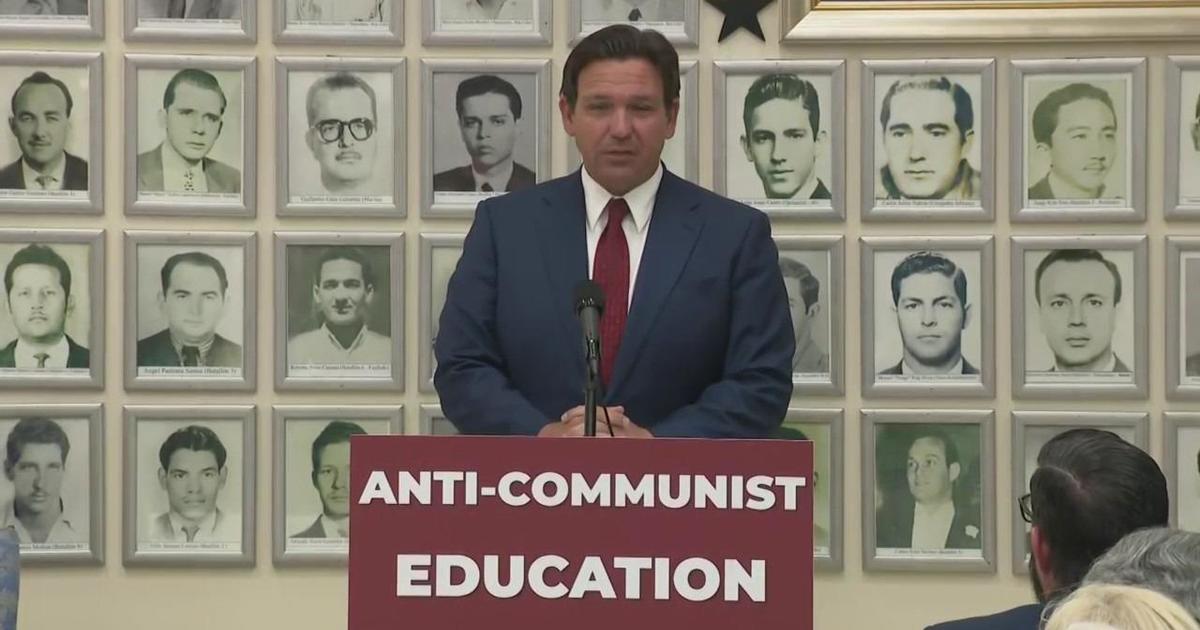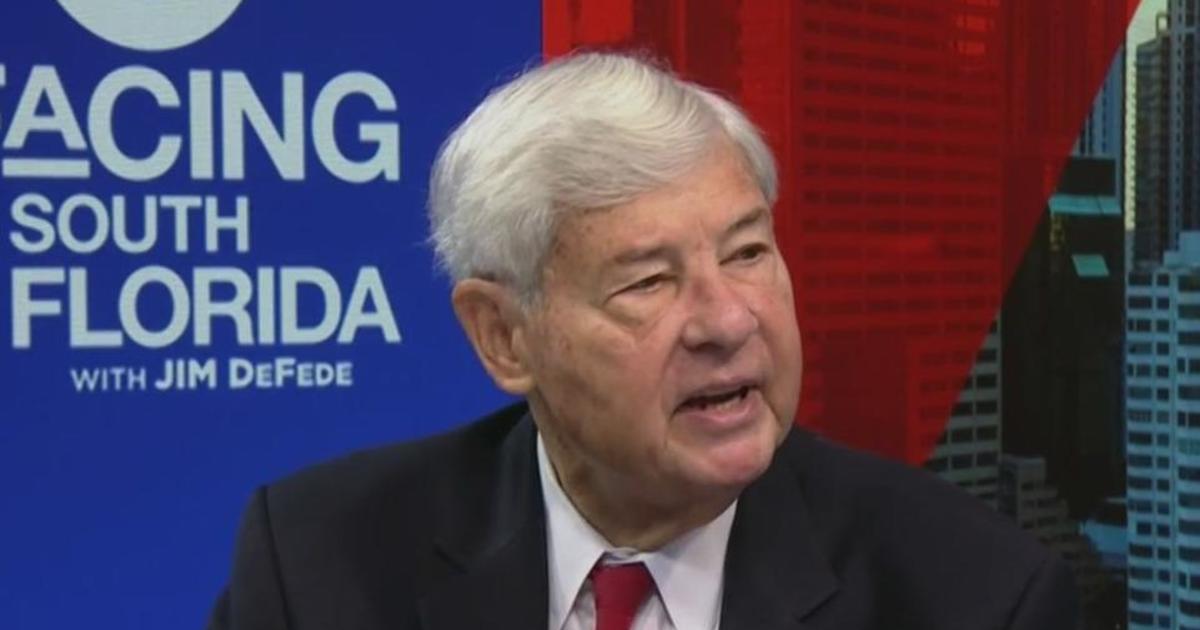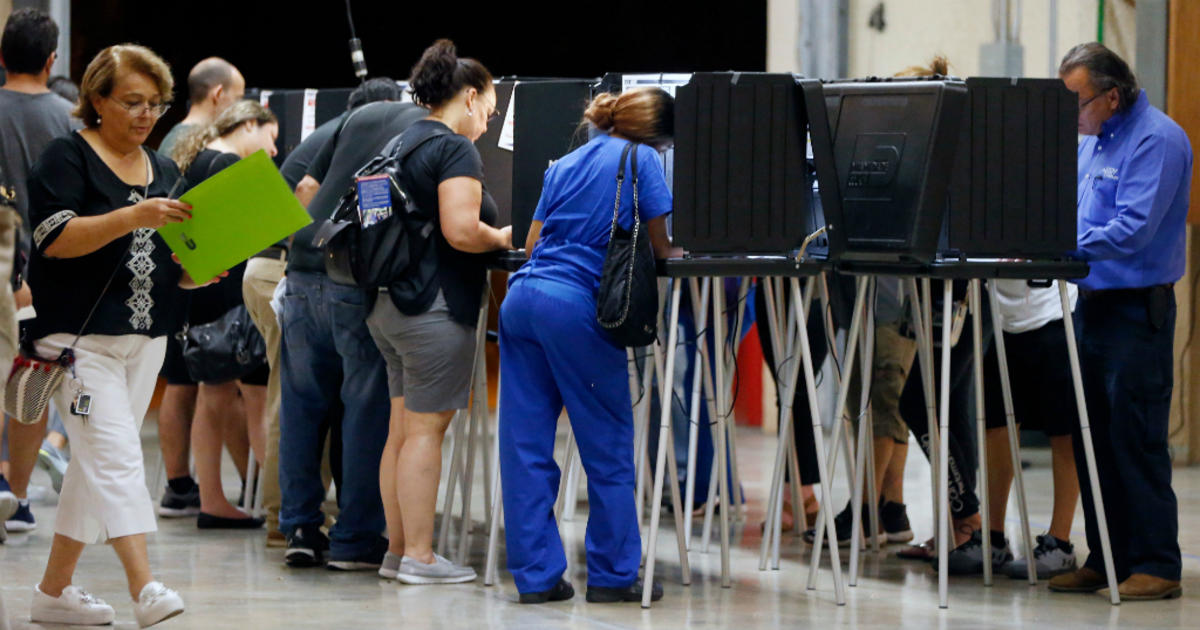DeSantis Attorneys Don't Want Court-Ordered Mediation In Legal Challenge Against Controversial Anti-Riot Law
TALLAHASSEE (CBSMiami/NSF) -- Lawyers for the state of Florida want to skip mediation in a legal challenge filed against the state's new controversial "anti-riot" law, championed by Gov. Ron DeSantis which is aimed at cracking down on violent protests.
The "Combating Public Disorder Act," HB 1, states a person shall be cited for a pedestrian violation if they "willfully obstruct the free, convenient, and normal use of a public street, highway or road."
The law is under scrutiny after South Florida demonstrators swarmed a part of the Palmetto Expressway on Tuesday, partially shutting down the busy highway for hours, in support of rare protests in communist Cuba.
A lawsuit filed by a coalition of groups, including the Dream Defenders and the Florida State Conference of the NAACP, contends that the law will have a "chilling" effect on protected speech and violates equal-protection and due-process rights.
Chief U.S. District Judge Mark Walker ordered mediation in the case to begin by Nov. 12 and be completed by Nov. 26.
But in a motion filed Tuesday, lawyers for Florida Attorney General Ashley Moody and Governor Ron DeSantis said that mediation, commonly ordered by judges, won't be productive.
The anti-protest bill was one of DeSantis' top legislative priorities. The Republican governor touted the plan following protests across the nation last year following the killing of George Floyd, a Black man, by a Minneapolis police officer. The law, passed this spring by Florida's Republican-controlled Legislature, includes a wide range of steps to penalize or enhance existing sanctions on violence and property damage related to protests.
DeSantis has boasted about the law, signing it this spring in Polk County while flanked by law-enforcement officers. During that event, he called it "the strongest, anti-rioting, pro-law enforcement piece of legislation in the country."
The law is multifaceted, including creating a new crime of "mob intimidation" and enhancing riot-related penalties. It also could help shield people from civil liability if they injure or kill protesters involved in riots --- an issue known as granting an affirmative defense.
In a motion seeking to dismiss the case, DeSantis and Moody raised a series of arguments, including saying that the measure does not curb free-speech rights of peaceful protesters.
"The act does not discourage, much less prohibit, any person from peacefully assembling, demonstrating, or speaking on any issue," the brief filed last month by DeSantis' lawyers said. "The act does not even apply to peaceful demonstrations or forms of expression. Rather, it outlaws people coming together, regardless of their motivation, to commit violence, damage property, or intimidate others into assuming or abandoning a viewpoint against their will. Prohibiting violence and destruction does not restrict constitutionally protected expression --- only dangerous, unlawful behavior."
But the lawsuit argues, in part, that the measure is overbroad, vague and "subjects non-violent protesters to criminal liability for exercising protected rights to speech and assembly."
As an example, the lawsuit says peaceful protesters at demonstrations could face criminal charges if they are in "close proximity to an act of violence or property destruction in which they themselves do not participate."
"Because (a section of the law) confers discretion to law enforcement to arrest nonviolent protesters in close proximity to a violent outburst that is caused by others, would-be protesters have already been and will continue to be discouraged from participating in demonstrations for fear that the intents and actions of others may subject them to severe criminal penalties," said the lawsuit, filed on behalf of the plaintiffs by attorneys from the NAACP Legal Defense and Educational Fund, the American Civil Liberties Union of Florida, Community Justice Protect and the national law firm of Akin Gump Strauss Hauer & Feld.
The lawsuit also says the measure violates equal-protection rights because it "targets Black organizers and organizations. The text, legislative history, timing, and public statements about the act made by Florida officials all make clear that the act was racially motivated."
CBS4's Brooke Shafer reached out to attorney David Weinstein for some legal perspective on Tuesday night.
"Today's actions by protesters violated the letter of the new laws regarding the civil infraction & the misdemeanor unlawful assembly," he said. "Law enforcement has discretion to act or not act on those violations. We will have to see if they use that discretion evenhandedly in the future."
While Weinstein said what protesters are doing, such as blocking the Palmetto Expressway, is in fact "a violation of the new laws passed by the Florida Legislature," he added that "like most laws, law enforcement has the discretion to act."
"They have decided not to hand out citations, or make arrests," he told Shafer. "This protest strikes a particular chord in South Florida. It might make matters worse to start an enforcement action and create more protests."
The problem now, Weinstein said, is that the lack of enforcement "sets a precedent."
"They now have to react the same way to a similar protest that might not be made on behalf of a cause that is not as widely supported in South Florida," he explained. "That is why the legislation itself was such a bad idea."
(©2021 CBS Local Media. All rights reserved. This material may not be published, broadcast, rewritten, or redistributed. The News Service of Florida contributed to this report.)



